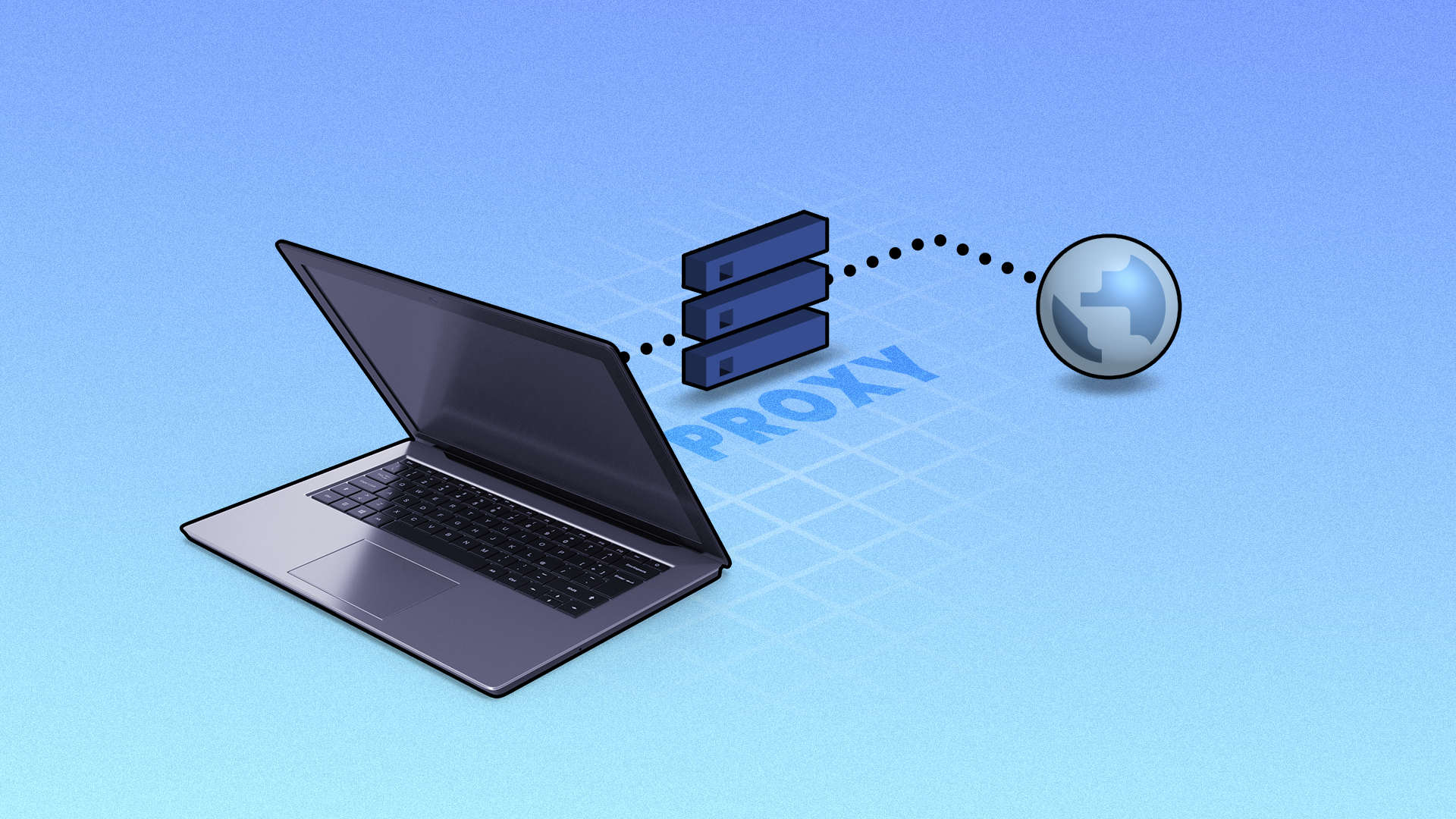You should always be conscious of your privacy and security on the internet, but not all privacy tools are created equal or do the same thing. Here are the things you should know about proxy servers, their limitations, and when you might want to use one.
What Does a Proxy Server Do?
Under normal circumstances, your internet traffic will flow between you and whatever service you are connected to through a series of servers. Those servers are the physical devices that make up the internet.
The way data moves through the internet between you is pretty transparent—you and the server can both see each other, and you can each view the intermediate hops data takes while it traverses the net. If you ever want to see this in action, open up Terminal and type tracert on Windows, or traceroute on Linux and macOS.
When you connect to a proxy server and route your traffic through it, anything that receives your traffic will see your data as originating from the proxy server rather than your actual PC. For example, imagine you are located in New York City and you connect to a proxy server in Omaha before browsing the internet. Any websites you connect to will think that you are based in Omaha.
You can configure a proxy server so that all of your traffic gets routed through it, or you can selectively route individual applications through it.
What Else Can Proxy Servers Do?
Beyond just hiding your IP, proxy servers actually see a lot of applications in schools and commercial settings, since they tend to sit at a convenient location within a network.
Proxy servers often host firewalls to control access to restricted content on the network or limit the amount of traffic from one particular source. This sort of thing is common in schools and in some workplaces.
Proxy servers can also cache web resources you access frequently to save time, since you won’t need to actually fetch it from the internet every single time. It is conceptually similar to how your browser cache works.
When Should You Use a Proxy?
Since any website you connect to will see the proxy server’s IP address instead of your IP address, you do gain a small amount of privacy by using a proxy. It is not enough to guarantee your complete privacy or security by any means, but it does make them handy in some scenarios.
Use a Proxy whenever you want it to appear as if your Internet traffic is coming from somewhere other than your actual physical location, but you don’t need to worry about hiding your traffic from anyone else. This is useful if, say, you want to view a video on YouTube that is region locked, bypass an internet poll that has a one-vote-per-IP policy, or run multiple accounts on services that might restrict you to one per person.
If you’ve been IP-banned from something, like a game, a proxy server can get you around it, though it won’t help bans that are based on user IDs or hardware IDs.
What’s the Difference Between a Proxy Server and a VPN?
For end users, proxy servers and VPNs serve similar purposes, but VPNs encrypt your traffic, while proxies do not.
In practice, this might not matter very much. If you’re just trying to bypass a geo restriction for a YouTube video, there is no real need for a VPN—a proxy will do fine.
ExpressVPN
ExpressVPN is fast, easy to use, and will keep you secure no matter your location.
Because proxies don’t use encryption, they’re theoretically faster, since your data has to go through fewer steps as it goes to and from whatever service you’re using. In the real world, you probably won’t notice much of a difference unless you’re doing something very sensitive to latency, like gaming.
Proxies also do nothing extra to protect your data in transit. Whatever security methods are employed by your device or the service you’re using is all you’ve got.
What About Reverse Proxies?
As the name suggests, reverse proxies exist to do the exact opposite of a “forward” proxy. The primary purpose of a reverse proxy is to sit between the broader internet and some individual server. Most frequently, this is done to hide the server’s real IP address to prevent attacks. If you ever try self-hosting something on the internet, it is a pretty important step to protect your security.
How to Set Up a Reverse Proxy With Apache
Apache is a versatile web server which offers a full complement of supporting features, some of them via extensions.
In that position, reverse proxies can do a lot. Some reverse proxies exist to prevent distributed denial of service (DDOS) attacks from overwhelming the target server. Other times, they host a firewall that controls the traffic that can reach whatever it is protecting, or balance loads, so that incoming traffic doesn’t overwhelm a server. Of course, these are all jobs beyond a simple proxy—they’re often just paired together.
Remember: however much privacy you gain through a proxy server or a VPN, there are other ways to track you across the internet that are much harder to defeat. Don’t assume because your IP is hidden that you’re anonymous.
Source link
